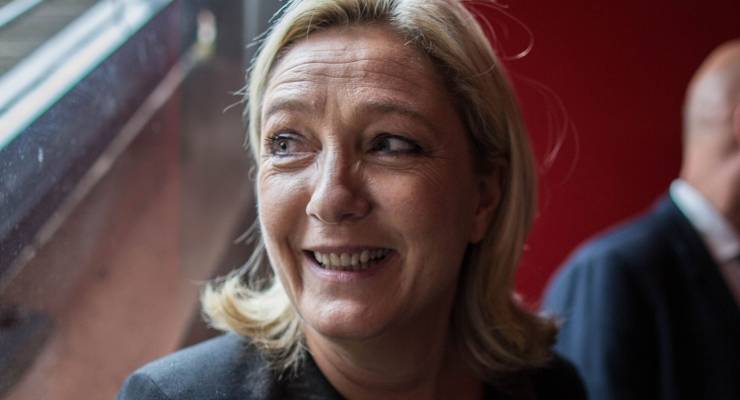
Marine LePen
There seems little doubt that the next president of France will be Francois Fillon. The urbane, conservative, practising Catholic won endorsement from the centre right Les Republicains convincingly in November. He has no credible rival.
Of course, the French media are not yet acknowledging this. They hope to report drama, tension and stratagemes passionnants between now and the May 7 final poll. But effectively the contest is over. Nevertheless some intriguing side plots remain.
Right now there are 15 contenders for the first round of the two-stage process on April 23. That will be reduced to nine on Sunday when le Parti Socialiste selects one candidate from seven nominees, or a week later if none gains 50% of the first vote.
One surprise already is that Francois Hollande is not among them. This is the first time an incumbent has not stood for a second term since Rene Coty in the 1950s yielded to the great Charles de Gaulle. Polling confirms Hollande would be humiliated in any vote.
The second surprise is the elimination of former president Nicolas Sarkozy after polling an embarrassing third behind Fillon and Alain Juppe in the Republican primary. Sarkozy retired briefly after getting la botte in 2012, but has campaigned vigorously since mid 2014.
The consistent polling numbers and the quirky nature of the presidential voting system virtually ensure Fillon will win easily, with Marine Le Pen of the far-right National Front second.
The left parties have effectively conceded defeat by fielding six candidates. Voting in France is first past the post rather than preferential, so the first candidate to get 50% of the votes, plus one, wins. This won’t happen in the first round, so the top two will face off two weeks later. Six candidates from the left against two from the right ensures all six leftists will be eliminated in the first ballot.
Crazy? Perhaps. It confirms that the left parties see this election as a popularity contest which will position one contender best for 2022.
The likely third-placed candidate behind Fillon and Le Pen is Hollande’s former minister for the economy and industry, now centre-left independent, Emmanuel Macron. His pluses are an effective campaigning style, independence from the established parties and his ability to generate grassroots support and finance.
Working against him are his association with the lacklustre Hollande regime, his earlier stint as a Rothschild banker–– a disqualifier particularly for millennials — and having no party apparatus. His new movement — En Marche! — is gaining attention, but has no actual achievements to run on.
The likely fourth-placed candidate will be whoever wins the Socialist primary on Sunday. Front-runners are former prime minister Manuel Valls, former education minister Benoit Hamon and former minister and anti-austerity campaigner Arnaud Montebourg. None appears, however, to have the charisma or the narrative to overcome the perception that the Socialists have had their chance but blew it.
Rounding out the field are, from the left, Jean-Luc Melenchon (Unsubmissive France), Nathalie Arthaud (Workers’ Struggle), Yannick Jadot (Greens), Philippe Poutou (New Anticapitalist Party) and, from the right, Nicolas Dupont-Aignan (France Arise).
These have no chance of winning, so are running to maintain party visibility for the June parliamentary polls and future local and regional elections.
The most intriguing sub plot is the level of support for Marine Le Pen, following perceived hard-right victories in the UK Brexit vote, the US presidential election and Italy’s constitutional referendum. Le Pen’s supporters are buoyed also by strong polling for Geert Wilders’ far right party in the Netherlands ahead of national elections there in March, six weeks before the French poll.
Many French are dismayed at the advances of the far right, however, so these may work against Madame Le Pen. Donald Trump is routinely described in the media as “dangereux” and “une menace economique mondiale” who will increase the “intensite de dangerosite” of a fragile world. Hence even if Le Pen beats Fillon in the first round, supporters of the eliminated leftists will certainly back him to block her in the second.
Always in France une surprise is possible. Could the winner of Sunday’s Socialist primary manage to create a persona and surge ahead of the other left candidates? Or could Macron and his En March! enthusiasts do that? Will this lead to a last-minute viable left compromise?
And could Le Pen actually beat Fillon in the second round if, as expected, she comes second in the first?
History and current polling suggests non to all these questions. But these days, neither is a reliable guide to anything.








Wrong caption. Not Fillon but Copé.
In fact not Fillon, not Copé but local Nice deputy Eric Cioti.
Socialist Party in 5th place, after Jean-Luc Melenchon.